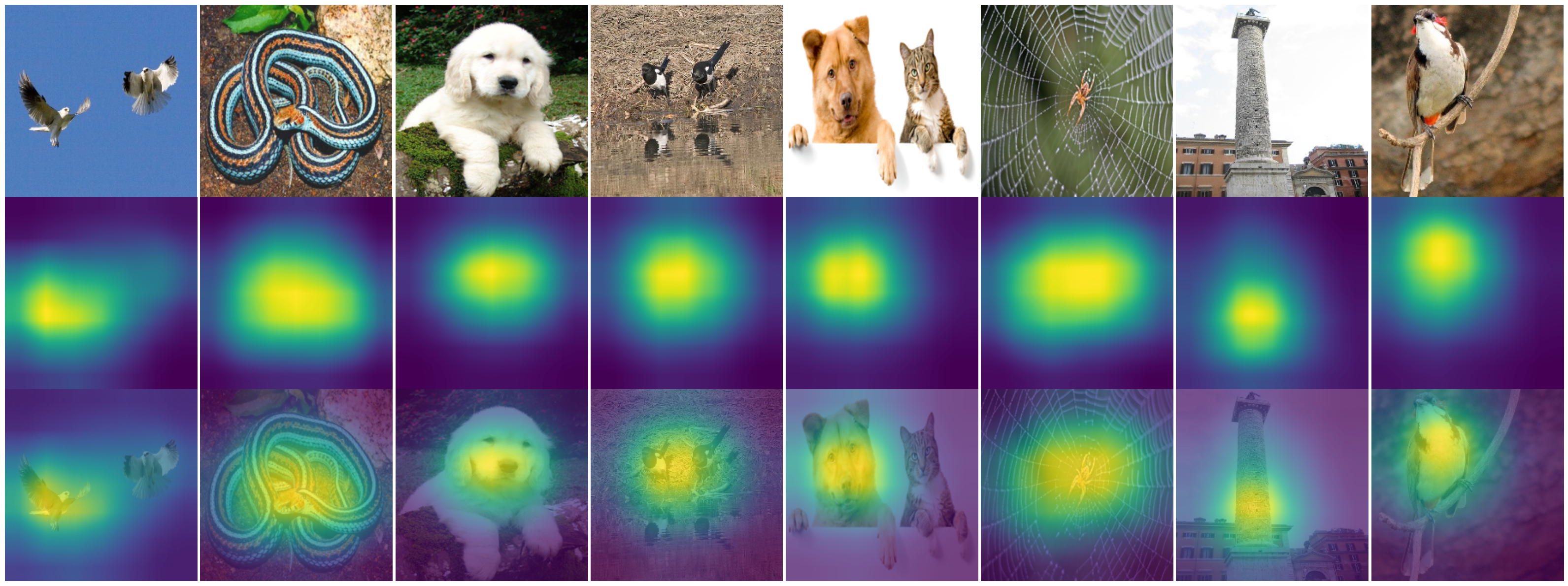TTA CAM¶
Test-time augmentation (TTA) is a commonly employed strategy in Saliency detection and Weakly Supervised Segmentation tasks order to obtain smoother and more stable explaining maps.
We illustrate in this example how to apply TTA to AI explaining methods using
keras-explainable. This can be easily achieved with the following code
template snippet:
import keras_explainable as ke
model = tf.keras.applications.Xception(...)
model = ke.inspection.expose(model)
ttacam = ke.methods.meta.tta(
ke.methods.cams.cam,
scales=[0.5, 1.0, 1.5, 2.],
hflip=True
)
_, cams = ke.explain(
ttacam, model, inputs, postprocessing=ke.filters.positive_normalize
)
We describe bellow these lines in detail.
Firstly, we employ the Xception network pre-trained over the
ImageNet dataset:
input_tensor = tf.keras.Input(shape=(None, None, 3), name='inputs')
model = tf.keras.applications.Xception(
input_tensor=input_tensor,
classifier_activation=None,
weights='imagenet',
)
print(f'Xception pretrained over ImageNet was loaded.')
print(f"Spatial map sizes: {model.get_layer('avg_pool').input.shape}")
Xception pretrained over ImageNet was loaded.
Spatial map sizes: (None, None, None, 2048)
We can feed-forward the samples once and get the predicted classes for each sample. Besides making sure the model is outputting the expected classes, this step is required in order to determine the most activating units in the logits layer, which improves performance of the explaining methods.
from tensorflow.keras.applications.imagenet_utils import preprocess_input
inputs = images / 127.5 - 1
logits = model.predict(inputs, verbose=0)
indices = np.argsort(logits, axis=-1)[:, ::-1]
explaining_units = indices[:, :1] # First-most likely classes.
model = ke.inspection.expose(model)
ttacam = ke.methods.meta.tta(
ke.methods.cams.cam,
scales=[0.5, 1.0, 1.5, 2.],
hflip=True
)
_, cams = ke.explain(ttacam, model, inputs, explaining_units, batch_size=1)
ke.utils.visualize(
images=[*images, *cams, *images],
overlays=[None] * (2 * len(images)) + [*cams],
)
